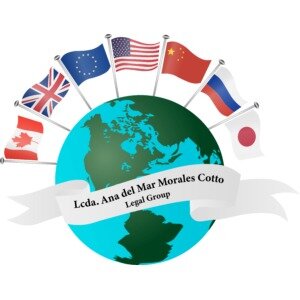Best Climate Change Law Lawyers in Puerto Rico
Share your needs with us, get contacted by law firms.
Free. Takes 2 min.
Or refine your search by selecting a city:
List of the best lawyers in Puerto Rico
About Climate Change Law in Puerto Rico
Climate Change Law in Puerto Rico encompasses a range of policies, regulations, and legal actions aimed at mitigating and adapting to the effects of climate change on the island. Due to Puerto Rico’s unique geographic location and vulnerability to hurricanes, rising sea levels, and extreme weather events, the territory has developed specific strategies to address environmental and climate-related challenges. Climate Change Law covers not only traditional environmental protection issues but also focuses on sustainable development, renewable energy, coastal zone management, and disaster resilience.
Why You May Need a Lawyer
Obtaining legal assistance in the field of Climate Change Law is crucial in several scenarios. Individuals and organizations may need a lawyer if they are:
- Developing or permitting renewable energy projects such as solar or wind power installations.
- Involved in disputes concerning land use, coastal development, or property rights affected by climate adaptation measures like new flood maps or zoning changes.
- Seeking to understand or challenge new environmental regulations or penalties related to emissions, waste management, or water use.
- Impacted by policies related to disaster recovery and resilience after hurricanes or other climate disasters.
- Advocating for environmental justice or participating in public hearings regarding infrastructure projects and their environmental impacts.
- Businesses navigating the transition to sustainable practices or compliance with local climate-related mandates.
Local Laws Overview
Puerto Rico has enacted several laws and initiatives to address climate change and its effects. Key aspects of local laws include:
- The Climate Change Mitigation, Adaptation, and Resilience Act of 2019, which establishes a framework for ongoing climate policy and efforts to reduce greenhouse gas emissions.
- A target to achieve 100 percent renewable energy usage by 2050, with interim goals for 40 percent by 2025 and 60 percent by 2040.
- Strict permitting requirements for activities that may impact water resources, coastal ecosystems, and forested lands.
- Policies supporting energy efficiency, disaster preparedness, and the modernization of Puerto Rico’s electrical grid.
- Integration of climate adaptation measures in urban planning, flood control, and rebuilding efforts after natural disasters such as Hurricane Maria.
Federal environmental laws, such as the Clean Air Act, Clean Water Act, and various disaster relief statutes, also apply in Puerto Rico and are enforced alongside local regulations.
Frequently Asked Questions
What is Climate Change Law?
Climate Change Law refers to all legal measures and regulations designed to address the causes and effects of climate change. This includes laws governing greenhouse gas emissions, renewable energy, resource conservation, and adaptation to environmental changes.
Who enforces climate-related laws in Puerto Rico?
The Puerto Rico Department of Natural and Environmental Resources (Departamento de Recursos Naturales y Ambientales, or DRNA) is the main agency. Federal agencies like the US Environmental Protection Agency (EPA) also enforce related regulations.
How does Puerto Rico’s Climate Change Mitigation, Adaptation, and Resilience Act affect individuals and businesses?
This law imposes new requirements for emissions reductions, supports renewable energy initiatives, and may affect permitting for construction, land use, and business operations in relation to environmental impact.
What are the main renewable energy legal requirements?
Puerto Rico law mandates a transition to 100 percent renewable energy by 2050. This means new projects often require adherence to specific standards, permitting processes, and reporting obligations related to energy generation and efficiency.
Are there special rules for coastal or flood-prone properties?
Yes. Properties in coastal or flood-prone areas are subject to additional zoning, building codes, and adaptation requirements to minimize the impact of rising sea levels and extreme weather.
Can local residents challenge environmental decisions or permits?
Yes. Residents have the right to participate in public comment periods, file appeals, or take legal action against regulatory decisions that impact the environment or public health.
What happens if someone violates climate or environmental laws?
Violations can result in fines, penalties, orders to remediate environmental harm, or criminal charges in severe cases. Legal counsel can help navigate enforcement actions or compliance disputes.
How can climate change laws affect disaster recovery and insurance claims?
After a disaster, legal standards for rebuilding, new construction, and infrastructure upgrades often incorporate climate resilience and adaptation criteria, which can impact insurance coverage and claims.
What is environmental justice and does it apply in Puerto Rico?
Environmental justice ensures fair treatment and meaningful involvement of all communities regarding environmental laws and policies. Puerto Rico’s climate change policies consider environmental justice, especially for communities disproportionately affected by climate impacts.
Do federal climate policies apply to Puerto Rico?
Yes. Federal laws and executive orders related to climate change and the environment generally apply in Puerto Rico, often in coordination with local statutes and agencies.
Additional Resources
For further information or support regarding Climate Change Law, consider the following resources:
- Puerto Rico Department of Natural and Environmental Resources (DRNA)
- Puerto Rico Energy Bureau
- Federal Emergency Management Agency (FEMA)
- US Environmental Protection Agency (EPA), Caribbean Environmental Protection Division
- Local legal aid societies and university environmental law clinics
- Non-profit organizations such as Comité Diálogo Ambiental and Para la Naturaleza
Next Steps
If you believe you need legal assistance in Climate Change Law:
- Gather relevant documents such as permits, notices, correspondence from government agencies, or records related to your property or project.
- Contact a lawyer who specializes in environmental or energy law and has knowledge of Puerto Rico’s climate-related regulations.
- Schedule a consultation to discuss your situation and determine the best course of action.
- Consider reaching out to the Puerto Rico Bar Association or local university law clinics if you need help finding qualified legal professionals.
- Stay informed about new policies or legal developments by following updates from the DRNA, Energy Bureau, or local news regarding climate changes affecting Puerto Rico.
A knowledgeable attorney can guide you through the complexities of climate change law, help you understand your rights and obligations, and represent you effectively in legal or regulatory proceedings.
Lawzana helps you find the best lawyers and law firms in Puerto Rico through a curated and pre-screened list of qualified legal professionals. Our platform offers rankings and detailed profiles of attorneys and law firms, allowing you to compare based on practice areas, including Climate Change Law, experience, and client feedback.
Each profile includes a description of the firm's areas of practice, client reviews, team members and partners, year of establishment, spoken languages, office locations, contact information, social media presence, and any published articles or resources. Most firms on our platform speak English and are experienced in both local and international legal matters.
Get a quote from top-rated law firms in Puerto Rico — quickly, securely, and without unnecessary hassle.
Disclaimer:
The information provided on this page is for general informational purposes only and does not constitute legal advice. While we strive to ensure the accuracy and relevance of the content, legal information may change over time, and interpretations of the law can vary. You should always consult with a qualified legal professional for advice specific to your situation.
We disclaim all liability for actions taken or not taken based on the content of this page. If you believe any information is incorrect or outdated, please contact us, and we will review and update it where appropriate.
Browse climate change law law firms by city in Puerto Rico
Refine your search by selecting a city.












